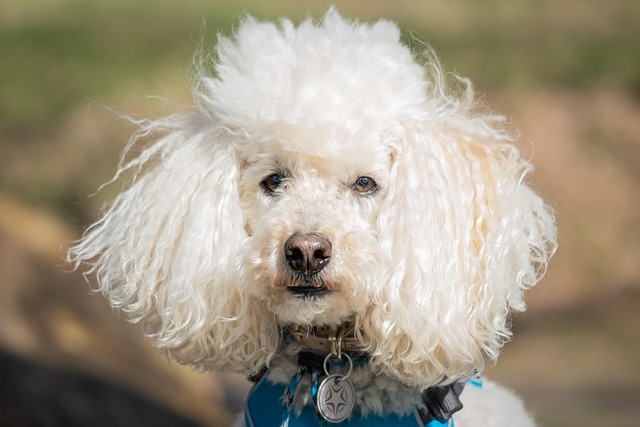When the lively and affectionate dog at home is diagnosed with pancreatitis, the hearts of every owner will surely skip a beat, and a surge of worry and heartache will immediately well up. Pancreatitis is a painful challenge to a dog's physical and mental state, and scientific and reasonable diet management is precisely the core element to help them overcome the disease and regain health. In the professional field of veterinary medicine, numerous studies and rich clinical experience have illuminated the path of dietary care for dogs with pancreatitis. Let's delve into these key pieces of knowledge to firmly establish the foundation for the dog's recovery.
Strict control of fat intake is the primary task in the diet management of dogs with pancreatitis. A large number of authoritative studies have shown that a high - fat diet is an important "culprit" in inducing and exacerbating pancreatitis. The digestion of fat relies on the pancreas to secrete a large amount of digestive enzymes. However, the function of the pancreas in a sick dog is already impaired and can hardly bear such high - intensity "work". It's like asking a sick worker to take on a task far beyond their capacity, which will undoubtedly worsen the condition. Therefore, when choosing dog food, one should focus on products with a low fat content. Generally, it is recommended that the fat content be maintained at 10% - 15%. At the same time, it is necessary to resolutely refrain from feeding dogs various high - fat foods, such as animal offal and fried foods. When seeing the dog looking expectantly at its favorite high - fat snacks but having to reluctantly refuse, there is a sense of helplessness and reluctance in the heart. But for its early recovery, everything is worth it.
 In addition to strictly controlling fat, carefully selecting high - quality protein sources is also of crucial importance. Protein is an essential nutrient for dogs to maintain normal body functions and repair damaged tissues. Judging from extensive clinical practice, it is a wise choice to prioritize easily digestible proteins, such as chicken, fish, and lean beef. These proteins can not only provide the necessary nutrients for dogs but also not add too much burden to the fragile pancreas. Take chicken as an example. It is rich in high - quality protein and has a relatively low fat content, making it one of the ideal foods for dogs with pancreatitis. During the cooking process, special attention should also be paid to the method. It is advisable to use light cooking methods such as steaming and boiling to avoid frying and deep - frying, minimizing the oil content in the food to the greatest extent. Every time we carefully prepare food for the dog, we pour our deep love into it, earnestly hoping that these nutritious and easily digestible foods will help it regain its former vitality as soon as possible.
In addition to strictly controlling fat, carefully selecting high - quality protein sources is also of crucial importance. Protein is an essential nutrient for dogs to maintain normal body functions and repair damaged tissues. Judging from extensive clinical practice, it is a wise choice to prioritize easily digestible proteins, such as chicken, fish, and lean beef. These proteins can not only provide the necessary nutrients for dogs but also not add too much burden to the fragile pancreas. Take chicken as an example. It is rich in high - quality protein and has a relatively low fat content, making it one of the ideal foods for dogs with pancreatitis. During the cooking process, special attention should also be paid to the method. It is advisable to use light cooking methods such as steaming and boiling to avoid frying and deep - frying, minimizing the oil content in the food to the greatest extent. Every time we carefully prepare food for the dog, we pour our deep love into it, earnestly hoping that these nutritious and easily digestible foods will help it regain its former vitality as soon as possible.
The choice of carbohydrates also cannot be underestimated in the diet of dogs with pancreatitis. Simple carbohydrates, such as refined flour and sugar in grains, can easily cause a rapid increase in blood sugar, thus aggravating the burden on the pancreas. Therefore, it is recommended to choose complex carbohydrates rich in dietary fiber, such as brown rice, oats, and sweet potatoes. The dietary fiber in these foods can slow down the digestion and absorption of carbohydrates, stabilize blood sugar levels, and at the same time promote intestinal peristalsis and improve digestive function. When seeing the dog happily eating the carefully prepared food rich in dietary fiber, a sense of relief will well up in the heart, knowing that every bite of food is contributing to its recovery.
Regarding the feeding frequency, professional veterinarians generally recommend the method of feeding small meals frequently. For dogs with pancreatitis, overeating at one time will significantly increase the burden on the pancreas, which is extremely unfavorable for the recovery of the condition. Dividing the daily food into 4 - 6 feedings allows the pancreas to function in a relatively relaxed state, which is more conducive to digestion and absorption. The amount of each feeding should not be too much, and it is appropriate for the dog to finish eating within 10 - 15 minutes. Watching the dog gradually regain its spirit and its weight stabilize under the small - meal - frequent - feeding diet pattern, the joy and sense of achievement are indescribable.
Water also plays a crucial role in the recovery of dogs with pancreatitis. Adequate water intake helps dogs maintain the balance of body metabolism and promote the excretion of toxins. It is necessary to ensure that the dog can drink clean and fresh water at any time. You can place several water bowls in the areas where the dog often moves around for easy access. If the dog is reluctant to drink water actively, you can also try to feed it water in small amounts and multiple times with a syringe or dropper. Every drop of water carries our earnest hope for the dog's early recovery.
The diet management of dogs with pancreatitis is a meticulous and long - term process. We need to use professional knowledge and full - hearted love to tailor a scientific and reasonable diet plan for the dog. Every adjustment of dietary details may become a key turning point in the dog's recovery. Dogs offer us unreserved loyalty and companionship. Let's use patience and love to safeguard their health, accompany them through this difficult time, and welcome the return of their energetic, happy, and carefree days.

 In addition to strictly controlling fat, carefully selecting high - quality protein sources is also of crucial importance. Protein is an essential nutrient for dogs to maintain normal body functions and repair damaged tissues. Judging from extensive clinical practice, it is a wise choice to prioritize easily digestible proteins, such as chicken, fish, and lean beef. These proteins can not only provide the necessary nutrients for dogs but also not add too much burden to the fragile pancreas. Take chicken as an example. It is rich in high - quality protein and has a relatively low fat content, making it one of the ideal foods for dogs with pancreatitis. During the cooking process, special attention should also be paid to the method. It is advisable to use light cooking methods such as steaming and boiling to avoid frying and deep - frying, minimizing the oil content in the food to the greatest extent. Every time we carefully prepare food for the dog, we pour our deep love into it, earnestly hoping that these nutritious and easily digestible foods will help it regain its former vitality as soon as possible.
In addition to strictly controlling fat, carefully selecting high - quality protein sources is also of crucial importance. Protein is an essential nutrient for dogs to maintain normal body functions and repair damaged tissues. Judging from extensive clinical practice, it is a wise choice to prioritize easily digestible proteins, such as chicken, fish, and lean beef. These proteins can not only provide the necessary nutrients for dogs but also not add too much burden to the fragile pancreas. Take chicken as an example. It is rich in high - quality protein and has a relatively low fat content, making it one of the ideal foods for dogs with pancreatitis. During the cooking process, special attention should also be paid to the method. It is advisable to use light cooking methods such as steaming and boiling to avoid frying and deep - frying, minimizing the oil content in the food to the greatest extent. Every time we carefully prepare food for the dog, we pour our deep love into it, earnestly hoping that these nutritious and easily digestible foods will help it regain its former vitality as soon as possible.



